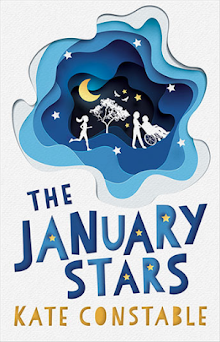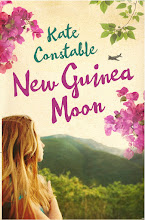I just wasted about fifteen minutes fruitlessly searching for an image of the cover of the edition of The Buried Giant that I borrowed from the library, but for some reason there doesn't seem to be a copy of it anywhere -- not even on the library catalogue! It happens to be a large print edition, which caught my eye as I walked through the library on another mission, and as there wasn't a normal edition on the shelves, I took this one. (And I have to admit, the large print was easy on my eyes -- not that I need it, no no no...)
So. In the past I have found Kazuo Ishiguro to be quite a frustrating author. I adored The Remains of the Day, absolutely loathed When We Were Orphans, and I'm intrigued by Never Let Me Go (which I've ordered but not read yet). I didn't quite know what to make of The Buried Giant.
I knew it was going to be a strange book, an allegory set in ancient Britain, where a fog has descended over the landscape, robbing the inhabitants of their memories. An elderly couple, Beatrice and Axl, set out to join their son in what they vaguely believe to be a nearby village, though disquiet lurks around the circumstances in which he left them. There are encounters with a Saxon warrior, a wounded boy, a dragon, an elderly knight, who is a relic of Arthur's Round Table, and a mysterious boatman who conveys people on their final journey. But it transpires that personal memories are not the only ones that have been stolen by the fog; a general amnesia about the terrible war between Britons and Saxons has also settled on the land -- a blessing or a curse?
As I was reading, I kept feeling that I was missing the point somehow, as if the story itself was obscured by the mists, and perhaps this was the point of the novel? But it made for a vaguely annoying read. The theme of memory and forgetting is of course a pertinent one -- just two nights ago on the radio I heard Dr Bill Lott discussing genetic memory, and whether it's useful to cling to the memory of historic wrongs -- will we still be memorialising Gallipoli in a thousand years time? On the other hand, some things are forgotten which need to be remembered more clearly (Aboriginal dispossession is the obvious example). This is an important topic. (And an interesting example of the serendipity that often accompanies one's reading -- relevant things do just pop up.)
But The Buried Giant only made this clear right at the end of the novel, too late for proper exploration of the implications. I know that Ishiguro often explores these themes, and perhaps I should have been better prepared.
I'm not sorry that I read it, and it did pique my interest enough to spur me to hunt down Never Let Me Go, but I can't shake off a faint disappointment with The Buried Giant.
3.6.16
Subscribe to:
Post Comments (Atom)















No comments:
Post a Comment
0 comments